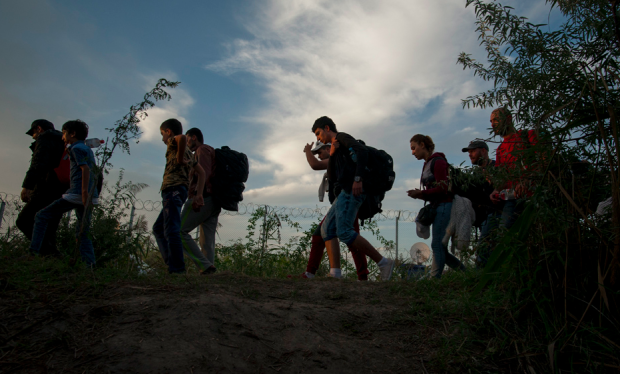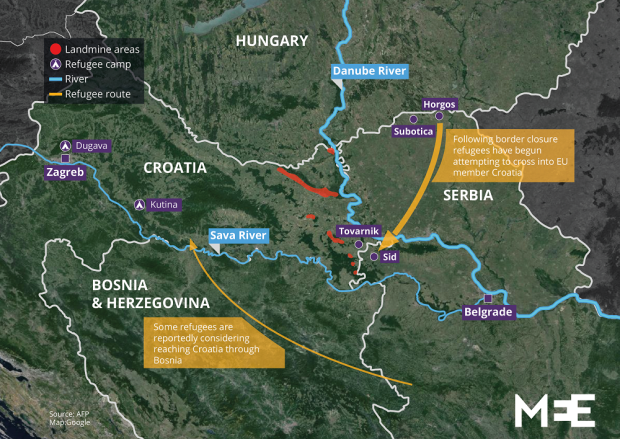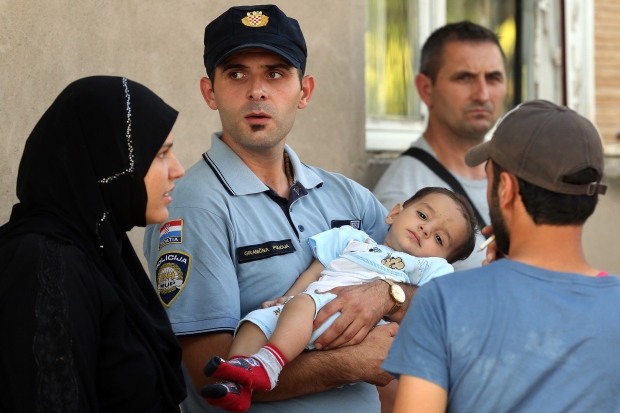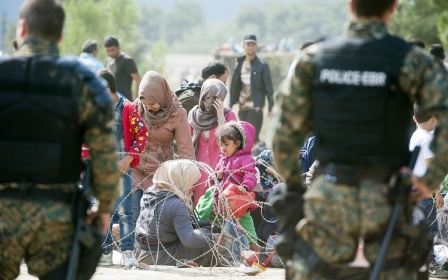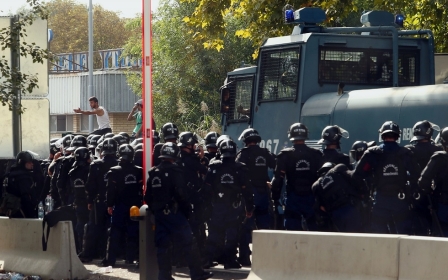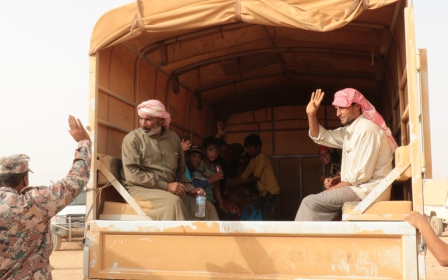More than 5,000 refugees enter Croatia after Hungary seals border
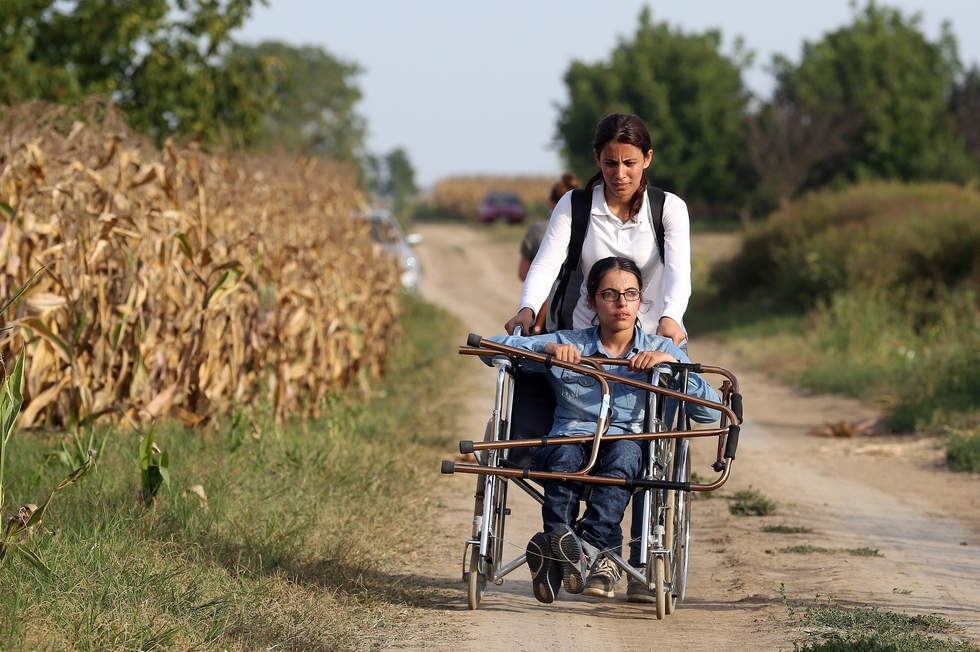
More than 5,000 refugees have entered Croatia from Serbia in the past 24 hours after Hungary sealed its border, Croatian media reported on Thursday.
Jutarnji List said that 5,560 refugees have now entered Croatia, with the Red Cross telling the daily that supplies were already beginning to run out.
New refugees were continuing to enter the European Union (EU) member on its eastern border, which became their new route on the journey to Western Europe, the Croatian channel reported.
A special train transporting some 800 refugees from Tovarnik, near the Serbian border, arrived in Dugo Selo, near Zagreb, around 0330 GMT, an AFP photographer reported.
The refugees were largely being transferred to a reception centre in nearby Jezevo.
"There are between 4,000 and 5,000 people here," Jan Kapic, a UNHCR spokesman, said from the small town in eastern Croatia earlier in the day."Trains are coming but they can't take all these people."
Only a handful of Red Cross workers were on hand to give out food and provisions for the hundreds of babies and children there.
More help was on the way, said Kapic, including medical assistance and toilets, the first of which were being delivered around 9am.
"For now we have enough but more will be needed and is on the way," he said.
Only a handful of Red Cross workers were on hand to give out food and provisions for the hundreds of babies and children there.
However, reports are emerging in the local press that many refugees and migrants are merely walking north and transiting to Hungary anyway.
Hungarian Prime Minister Viktor Orban has now said that he will soon build a new border fence with Croatia, after work is completed on the barbed wire barrier with Serbia and Romania.
"Obviously the route no longer goes over the Hungarian-Serbian border," Orban told Austrian newspaper Prese. "Because of this, we have decided to build a wall with the border with Romania, and also in some specific places along the Croatian border."
Croatian Foreign Minister Vesna Pusic said late on Wednesday that the country was prepared for the arrival of refugees but could not cope if the numbers increased dramatically.
"We are ready to (provide) asylum to a few thousand people and we can handle that, but we are not ready for tens of thousands," Pusic told HRT.
"We do not have capacities" for such an influx, she added.
Croatian Prime Minister Zoran Milanovic was to hold talks in Zagreb later on Thursday with his Austrian counterpart, Chancellor Werner Faymann. Faymann would then travel to Ljubljana to meet Slovenian premier Miro Cerar, his office said.
Milanovic had vowed that his country would allow free passage of refugees across its territory.
A crisis meeting of the country's top security body, the National Security Council, was to be held on Friday.
The former Yugoslav republic has some 6,000 border police deployed.
Since the start of the crisis the Croatian authorities have urged solidarity with refugees, recalling its own role in accommodating hundreds of thousands of refugees and displaced people during the 1990s Balkans wars.
'I hate you, Hungary! Thank you, Serbia'
Dozens of refugees managed on Wednesday evening to overwhelm Hungarian riot police and enter Hungarian territory from Serbia.
"I hate you, Hungary! Thank you, Serbia," said one Iraqi migrant, Hussan, clutching a stone as he rushed to attack the Hungarian police on the border with Serbia.
It was his way of taking revenge after Budapest's decision to close its frontier to refugees hoping to cross through the country en route to Germany.
The two access roads leading to Hungary, usually used by cars, were transformed into a campsite with more than a hundred tents pitched, including on the bare asphalt.
In the evening, 20 Serbian police, until then very discreet, intervened to try to control the refugees after clashes broke out between Hungarian riot police and refugees and migrants. Serbian media described the scenes as a "war zone" on the border and said that Hungarian police beat up a crew from Serbia's main TV channel, RTS.
The Serbian minister responsible for refugees, Aleksandar Vulin, also visited the site to try to calm the situation.
About 500 refugees were at the site, including some 300 who were engaging in skirmishes with cries of "Freedom, freedom" and throwing projectiles.
Two Hungarian helicopters, one army and the other police, flew over the scene. The authorities said that 20 Hungarian police were injured.
Children and adults were crying because of the gas, and the Serbian police, who watched the scene without intervening, themselves had to protect their faces with handkerchiefs.
It was the first such incident since Budapest closed the border with Serbia to refugees on Monday night.
UN chief Ban Ki Moon has criticised Hungary: “I was shocked to see how these refugees and migrants were treated. It’s not acceptable ... since they are the people who are fleeing the violence and persecution, we must ensure our compassionate leadership.”
New MEE newsletter: Jerusalem Dispatch
Sign up to get the latest insights and analysis on Israel-Palestine, alongside Turkey Unpacked and other MEE newsletters
Middle East Eye delivers independent and unrivalled coverage and analysis of the Middle East, North Africa and beyond. To learn more about republishing this content and the associated fees, please fill out this form. More about MEE can be found here.


